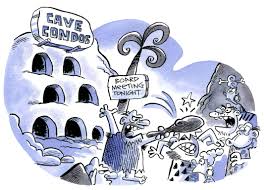 Attorneys provide valuable legal services on behalf of cooperative and condominium boards. Some buildings with fewer than ten units and without disputes have managed without an attorney representing the board. Other buildings may continue with the attorney who originally represented the sponsor. The purpose of this blog post is to describe the services that can be provided by an attorney representing a cooperative or condominium board.
Attorneys provide valuable legal services on behalf of cooperative and condominium boards. Some buildings with fewer than ten units and without disputes have managed without an attorney representing the board. Other buildings may continue with the attorney who originally represented the sponsor. The purpose of this blog post is to describe the services that can be provided by an attorney representing a cooperative or condominium board.
Transfers of apartments will occur at some point. It is not unusual for the building’s managing agent to conduct closings. While many managing agents conduct a variety of tasks and are indispensible to the building, their knowledge is largely operational and particularly relevant to the physical plant of the building. Attorneys are properly situated to evaluate legal situations presented before and during a closing. For instance, after a shareholder dies, the family may wish to transfer the apartment to a family member or sell the apartment to a third party. A managing agent is not the best person to evaluate whether the seller/transferor has delivered the proper documents. Does a managing agent know to ask for a Will to make sure that the deceased did not bequeath the apartment to a friend? It may be a mistake with potential legal liability to the cooperative if the apartment is transferred to a purchaser rather than to the friend. Can the managing agent properly review the Letters Testamentary or Letters of Administration to confirm that they are valid to pass the apartment in question? Sometimes estate documents could even be presented from other jurisdictions, requiring a trained legal practitioner to evaluate. The managing agent may mistakenly approve a power of attorney or affidavit of lost stock certificate and proprietary lease that is invalid for some reason, fail to obtain original documents that are necessary for the cooperative to hold, or fail to collect fees on behalf of the building. A variety of issues may be encountered by a transfer agent at a closing which require the judgment and discretion of the building’s attorneys. In this instance, our firm charges the parties to the transaction only, so that engaging our services to be the transfer agent for closings does not cost the building as a whole and potentially benefits the building as a whole by avoiding legal liability.
Cooperatives and condominiums should also engage an attorney for occasional but significant legal events, such as the refinance of the underlying mortgage of a cooperative or the negotiation of a major contract. Such a major contract could pertain to the replacement of windows, renovation of the elevator, or installation of a new roof. Vendor contracts, such as for the laundry room equipment or oil delivery company require review by the building’s attorney because they will contain provisions that are only favorable to the vendor. Since managing agents may have professional relationships with some of these vendors, it may be prudent for “checks and balances” purposes for the building attorney to review these vendor contracts. Certainly an experienced attorney will be in the position of offering terms that are beneficial to the building that an untrained eye may miss.




 People are leading increasingly complicated lives, in that they spend their time in several locales, some of which may not be their place of residence. If a person is fortunate, they may develop an affection for a particular area and buy a second home in such area. Likewise, they may inherit a beloved family home in a location where they do not live. When such a person passes away, the disposition of all of their property, no matter where located, must be addressed. The question to be explored in this blog post is which Court has jurisdiction over which property.
People are leading increasingly complicated lives, in that they spend their time in several locales, some of which may not be their place of residence. If a person is fortunate, they may develop an affection for a particular area and buy a second home in such area. Likewise, they may inherit a beloved family home in a location where they do not live. When such a person passes away, the disposition of all of their property, no matter where located, must be addressed. The question to be explored in this blog post is which Court has jurisdiction over which property.  Our readers may be familiar with a cooperative apartment building located in Manhattan by the name of River House. This building is known not only for its distinctive classic architecture and regal location, but also by its stringent admissions standards for purchasers. It has been well known throughout the New York real estate community that the River House has declined the purchase applications of numerous famous people and persons with seemingly substantial assets. This culture has resulted in apartments being listed for sale for years, because potential purchasers cannot get approved by the board. Overly rigorous standards hurt all residents, as apartments will not sell as readily.
Our readers may be familiar with a cooperative apartment building located in Manhattan by the name of River House. This building is known not only for its distinctive classic architecture and regal location, but also by its stringent admissions standards for purchasers. It has been well known throughout the New York real estate community that the River House has declined the purchase applications of numerous famous people and persons with seemingly substantial assets. This culture has resulted in apartments being listed for sale for years, because potential purchasers cannot get approved by the board. Overly rigorous standards hurt all residents, as apartments will not sell as readily.  Evil stepmothers are not only found in popular culture, as epitomized in Cinderella
Evil stepmothers are not only found in popular culture, as epitomized in Cinderella  . Such persons are commonly the subject of events reported by the New York press.
. Such persons are commonly the subject of events reported by the New York press.  Recently in the news is the rather
Recently in the news is the rather  A recent
A recent  A recent article in the
A recent article in the 
 Recently in the news is a
Recently in the news is a